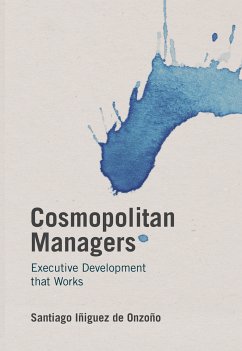
Planning the Development of Builders, Leaders and Managers for 21st-Century Business: Curriculum Review at Columbia Business School (eBook, PDF)
Versandkostenfrei!
Sofort per Download lieferbar
72,95 €
inkl. MwSt.
Weitere Ausgaben:

PAYBACK Punkte
36 °P sammeln!
Business and management education has an important impact on business practice throughout the world. To a very large extent, possession of the MBA degree is a passport into the upper reaches of management, and CEOs of many major corporations have earned an MBA. It is a reasonable inference that the education received by these leaders and managers during their MBA experience has an important impact on the way that businesses throughout the world are led and managed and that major corporate decisions are made. The heart of the MBA education is the curriculum, and curriculum design is perhaps the...
Business and management education has an important impact on business practice throughout the world. To a very large extent, possession of the MBA degree is a passport into the upper reaches of management, and CEOs of many major corporations have earned an MBA. It is a reasonable inference that the education received by these leaders and managers during their MBA experience has an important impact on the way that businesses throughout the world are led and managed and that major corporate decisions are made. The heart of the MBA education is the curriculum, and curriculum design is perhaps the most important strategic function for a business school faculty to undertake. In order to understand the many issues concerning this contemporary curriculum review, this book examines three related contextual domains. First, it details the long-term growth of business and management education. Second, it examines the major theoretical and empirical literatures on organizational evolution and decision making, paying special attention to decision making in institutions of higher education. Finally, the book describes the previous major curriculum review at Columbia Business School in the late 1950s and the subsequent changes that formed the curriculum that was changed in 1992. This book demonstrates what can be achieved by an institution that sets high standards for its business education, and assists faculty and administrators in other schools of business and management as they contemplate revision of their curricula. In addition, it provides a prime example of curriculum design effort in one of the leading institutions worldwide. Finally, it will be of interest to scholars in several different fields, notably, higher education curriculum review, organizational decision making and long-run organizational evolution.
Dieser Download kann aus rechtlichen Gründen nur mit Rechnungsadresse in A, B, BG, CY, CZ, D, DK, EW, E, FIN, F, GR, HR, H, IRL, I, LT, L, LR, M, NL, PL, P, R, S, SLO, SK ausgeliefert werden.












